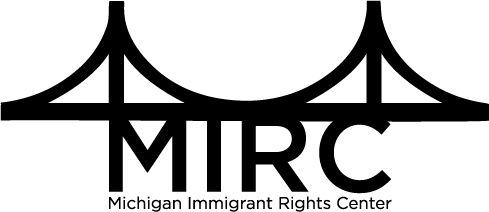Michigan Statewide Advocacy Services
(MSAS)
A non-profit organization that serves low-income individuals and families as well as lawyers and other advocates in Michigan.
Programs
Crime Victims Legal Assistance Project
This project provides free legal help to clients who have experienced domestic violence and to clients who are at least 55 years old and have experienced abuse, neglect, or exploitation.

MI Choice, CTS, and PACE Ombudsman Program
This program ensures participants receive the Home and Community Based Services (HCBS) they are entitled to under these programs as well as protecting participant’s rights.
Michigan Elder Justice Initiative
This program focuses primarily on issues affecting the most vulnerable older adults including long term care; guardianship; public benefits; and elder abuse, neglect, and exploitation. It also works closely with disability advocates to address issues of shared concern.

Michigan Foreclosure Prevention Project
This project is a partnership between legal aid offices and housing counselors throughout Michigan, as well as the National Consumer Law Center, and provides help to people facing mortgage and tax foreclosure.

Michigan Health Link Ombudsman
MHLO serves as an advocate and problem-solver for beneficiaries enrolled in MI Health Link.
Michigan Immigrant Rights Center
MIRC is a legal resource center for Michigan's immigrant communities. MIRC works to build a thriving Michigan where immigrant communities experience equity and belonging.

Michigan Legal Help Program
MLH's mission is to educate the public about their rights and responsibilities under the law and to help visitors navigate the court system properly and efficiently.
Michigan Long Term Care Ombudsman
This program strives to improve the quality of care and quality of life experienced by residents of licensed long term care facilities. It also aims to improve the long term care system, advocating for passage of laws, regulations, and policies benefiting over 100,000 Michigan long term care residents.
Michigan Poverty Law Program
MPLP provides support services statewide for local legal aid programs and other poverty law advocates. MPLP engages in systemic advocacy to help alleviate barriers faced by low income individuals.
Board of Directors
David Shaltz
Chalgian & Tripp Law Offices PLLC
Delphia Simpson - President
Washtenaw County Public Defender
Hansen Clarke
Detroit, MI
John C. Philo
Maurice & Jane Sugar Law Center for Economic & Social Justice
Linda K. Rexer
Ann Arbor, MI
Martha Gonzalez Cortes
Michigan Donor Alliance
Mission
Vision
A civil justice system that provides equitable access to all.
Mission
To advance the safety, independence, and economic stability of those most affected by poverty, racism, and other structurally oppressive systems by increasing access to justice and working for systemic solutions.
Values
MSAS aspires to fully live our values internally and externally:
- Justice: Aspiring for the fair and equitable treatment for all within the legal system and beyond
- Equity: Addressing the deep inequities caused by poverty, racism, and other structurally oppressive systems
- Compassion: Recognizing suffering and working toward its alleviation
- Quality: Striving for excellence in all that we do
- Service: Ensuring our clients are as connected and resourced as possible to address their needs
- Integrity: Adhering to our values as we work toward our mission
Commitment to Anti-Racism Statement
The Michigan Statewide Advocacy Services (MSAS) embraces the values articulated in the Michigan Statewide Advocacy Services’ Diversity, Equity and Inclusion Statement. MSAS is committed to anti-racism in all aspects of our work including in our advocacy, communications, workplace environment, vendor selection, hiring, promotion, and retention.
MSAS acknowledges that individual bias as well as institutional and structural racism exist in all individuals and systems. We understand that facially neutral policies and practices can perpetuate and result in racial inequities, particularly in the legal system that has historically been designed to perpetuate white dominance. We also recognize that actions that drive inequities may not be intentionally racist. By listening, learning and understanding more about racism on an individual and institutional level, we can better inform the way our organization functions and help dismantle racism through our interactions with one another, community partners, and with clients.
We commit to continually learn about and discuss issues of race and institutional oppression with the goal that our learning be reflected in the culture of MSAS as a program. We also commit to communicate to policy makers and the public the ways in which racism affects the communities we serve. We commit to the ongoing development of structures for accountability to our clients and community partners.
Through our action, we strive to eliminate racism, which harms people, programs, and systems.
We remain committed to advancing racial justice in solidarity with Black communities across Michigan through our individual client representation, systemic advocacy, and community partnerships.
We understand that anti-racism is our responsibility and a necessary element of our work. Our work must include dismantling the structures and systems that allow and perpetuate white supremacy and racism.
